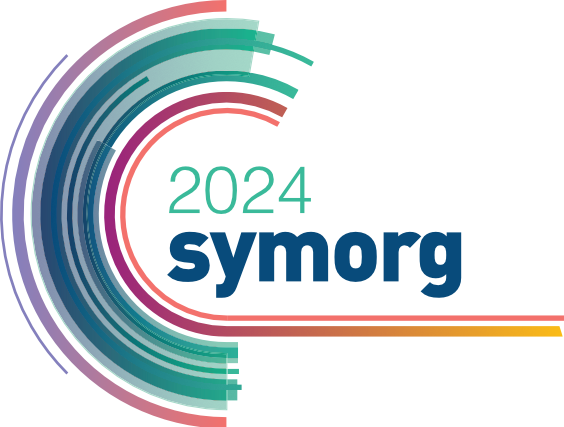Transformational Potential of Generative AI
Track moderators

Dragan Vukmirović, Ph.D.
POSITIONS
Full Professor
University of Belgrade – Faculty of Organizational Sciences
Department of E-business

Marija Kuzmanović, Ph.D.
POSITIONS
Full Professor
University of Belgrade – Faculty of Organizational Sciences
Department of E-business
Description
GenAI is revolutionizing our interaction with technology, enabling natural language communication with computers, a stark contrast to traditional programming languages. This innovation extends beyond dialogue into generating new content across various formats like text, images, audio, and videos, all without the need for specialized programming knowledge.
The accessibility of GenAI, often at little to no cost, democratizes its benefits. Unlike previous technologies that automated repetitive tasks, GenAI ventures into creative domains, executing complex tasks with minimal human intervention. Its implementation could increase annual labor productivity growth by approximately 1.5% over a decade, potentially boosting the global GDP by 7%.
Goldman Sachs strategists Ryan Hammond and David Kostin suggest that productivity gains from GenAI could expand current capital growth trends in the United States, positively impacting the stock market, particularly the S&P 500 index. They forecast a potential 9% increase in the fair value of the S&P 500 due to GenAI’s influence.
GenAI is poised to transform the labor market, potentially leading to job displacements. Approximately two-thirds of jobs in the U.S. are at risk of automation, with administrative and legal professions facing significant impacts. However, this shift also creates opportunities for new job roles and demands for different skill sets.
To leverage GenAI’s potential, businesses, governments, and educational institutions must embrace it as a tool, investing in workforce training programs. Early data indicates that workers familiar with GenAI technologies are more likely to retain their jobs. As witnessed in the early 2000s with ICT, new technologies can lead to the creation of novel professions while boosting demand in service industries like healthcare and education.
The impact of GenAI, whether disruptive or transformational, depends on its application, regulatory frameworks, and societal choices in managing these technologies. Policy makers should aim to create a regulatory environment that encourages GenAI usage while addressing concerns like data protection, AI ethics, and employment impacts.
Key topics
- Democratization of Creativity and Innovation (How GenAI is making technology accessible to a wider audience, enabling people without technical backgrounds to engage in creative and innovative endeavors. Highlight GenAI’s role in breaking down barriers to creativity and its potential to foster a new wave of digital creators.)
- Economic Impact, Productivity Gains, and Stock Market Growth (Discussions on the economic implications, including productivity enhancements and potential boosts to global GDP. Address how these gains could influence stock market trends, especially focusing on sectors most likely to benefit from GenAI advancements.)
- Transforming the Labor Market: Opportunities and Challenges (Detail GenAI’s dual impact on job displacement and creation, emphasizing the evolving nature of work and the importance of skill adaptation. How different sectors might be affected and the role of education and training in preparing the workforce for these changes.)
- Policy, Regulatory Frameworks, and Ethical Considerations (Combination policy and ethical considerations into a comprehensive discussion on the need for robust regulatory frameworks to manage GenAI’s integration into society responsibly. Cover aspects such as data privacy, AI ethics, and the mitigation of biases, alongside the potential regulatory responses to these challenges.)
- Practical Applications and Case Studies Across Industries (Real-world applications and use cases of GenAI across various sectors, including but not limited to education, healthcare, entertainment, and more. This section should showcase how GenAI is being utilized to solve complex problems and enhance services and products.)
- Generative AI in Education: A Paradigm Shift (The transformative potential of GenAI in the educational sector, from personalized learning experiences to automating administrative tasks. Discuss the implications for both educators and students and how GenAI can revolutionize teaching methodologies and learning outcomes.)
- Beyond Hype: Addressing Challenges and Mitigation Strategies (Acknowledge the hype surrounding GenAI while critically examining the challenges it poses, such as computational costs, environmental concerns, and the digital divide. Propose practical mitigation strategies to ensure sustainable and equitable development and adoption of GenAI technologies.)
















